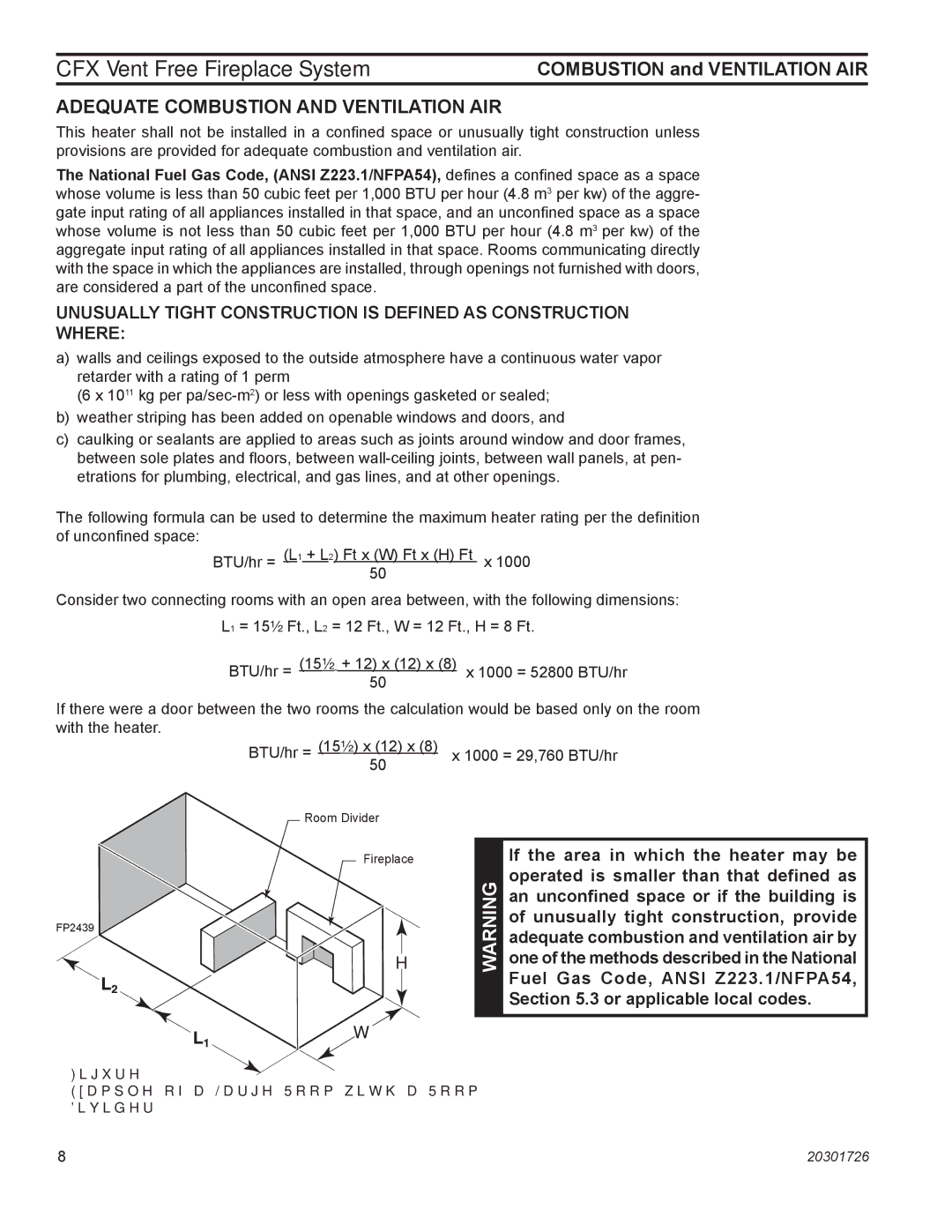
CFX Vent Free Fireplace System | COMBUSTION and VENTILATION AIR |
ADEQUATE COMBUSTION AND VENTILATION AIR
This heater shall not be installed in a confined space or unusually tight construction unless provisions are provided for adequate combustion and ventilation air.
The National Fuel Gas Code, (ANSI Z223.1/NFPA54), defines a confined space as a space whose volume is less than 50 cubic feet per 1,000 BTU per hour (4.8 m3 per kw) of the aggre- gate input rating of all appliances installed in that space, and an unconfined space as a space whose volume is not less than 50 cubic feet per 1,000 BTU per hour (4.8 m3 per kw) of the aggregate input rating of all appliances installed in that space. Rooms communicating directly with the space in which the appliances are installed, through openings not furnished with doors, are considered a part of the unconfined space.
Unusually tight construction is defined as construction where:
a)walls and ceilings exposed to the outside atmosphere have a continuous water vapor retarder with a rating of 1 perm
(6 x 1011 kg per
b)weather striping has been added on openable windows and doors, and
c)caulking or sealants are applied to areas such as joints around window and door frames, between sole plates and floors, between
The following formula can be used to determine the maximum heater rating per the definition of unconfined space:
BTU/hr = (L1 + L2) Ft x (W) Ft x (H) Ft x 1000 50
Consider two connecting rooms with an open area between, with the following dimensions: L1 = 15Z\x Ft., L2 = 12 Ft., W = 12 Ft., H = 8 Ft.
BTU/hr = (15Z\x + 12) x (12) x (8) x 1000 = 52800 BTU/hr 50
If there were a door between the two rooms the calculation would be based only on the room with the heater.
BTU/hr = | (15Z\x) x (12) x (8) | x 1000 = 29,760 BTU/hr |
| 50 |
|
Room Divider
Fireplace
FP2439
H
W
Figure 3 -
Example of a Large Room with a Room
Divider
WARNING
If the area in which the heater may be operated is smaller than that defined as an unconfined space or if the building is of unusually tight construction, provide adequate combustion and ventilation air by one of the methods described in the National Fuel Gas Code, ANSI Z223.1/NFPA54, Section 5.3 or applicable local codes.
20301726
